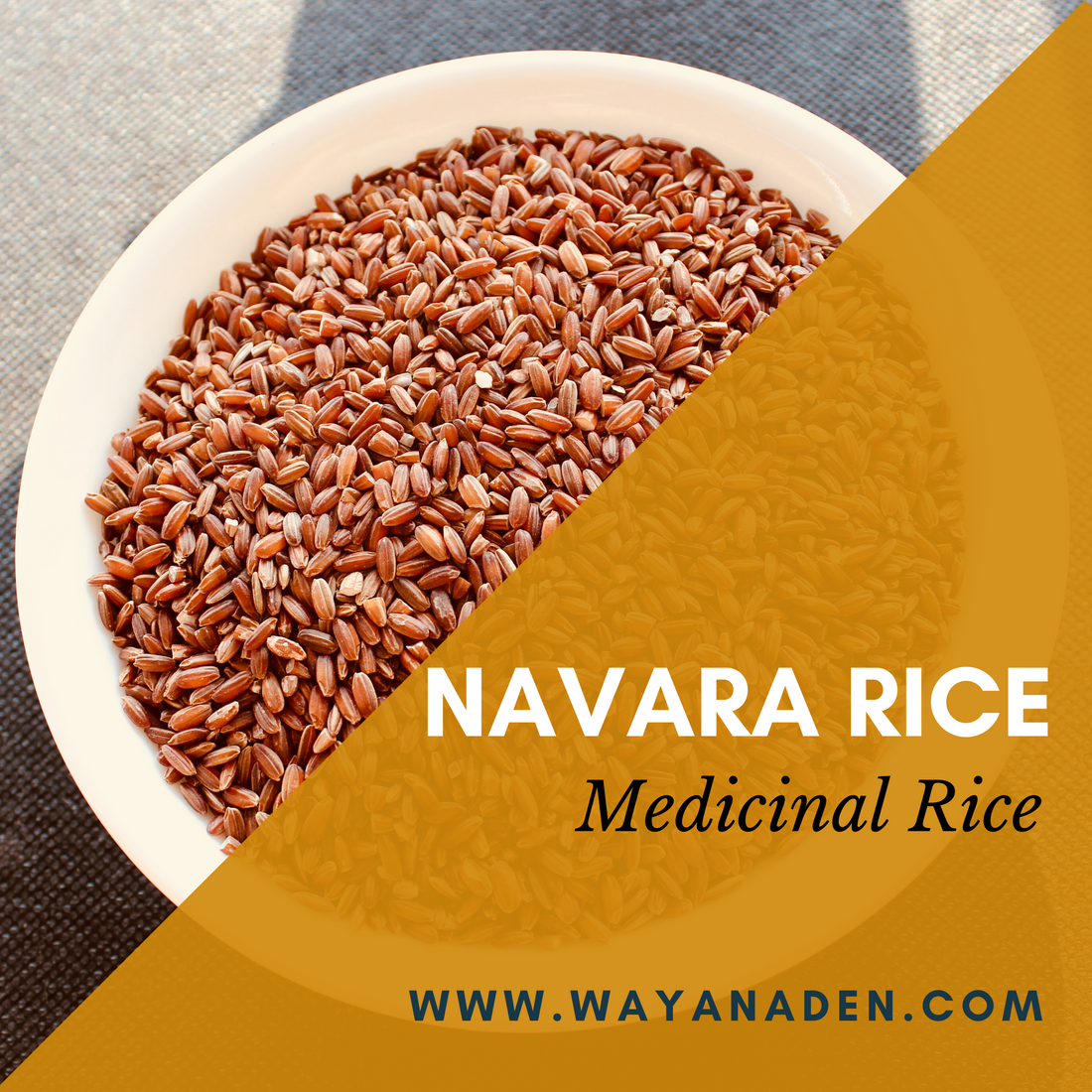Rice is the basic food of about half the human race and is often the main source of calories and the principal food of many millions of people. References to rice appear in the early Sanskrit texts. Apart from being widely used in a variety of dishes, rice in India forms part of the culture. To cite an example, during weddings, it is customary to throw rice at newlyweds or for the bride to offer rice as the first food to her husband in that rice is associated with prosperity and fertility.
Among the numerous varieties of rice, ‘Njavara’ variety, a unique rice cultivar indigenous to Kerala, has a special status, it being predominantly medicinal. It is bestowed with extra short growth duration. According to studies, it has been under cultivation in Kerala for about 2500 years.
This special cereal is much valuable as food as well as medicine. The major use of Njavara is in Ayurveda. Some of the synonyms of Njavara in Ayurveda are shashtika, shashti sali.
There are two recognized varieties of Njavara based on the colour of the glume: black and golden yellow.
Black glumed Njavara is hightly resistant to drought conditions and diseases. Mostly seen in northern Kerala (Wayanad), it matures in about 60 days,. It has a special capacity to absorb manganese and trans-locate it to the grain. Its seeds are red in colour. Black glumed Navara rice is superior in its nature, as it is used for medicinal (ayurvedic) purposes. Wayanaden navara rice is black glumed variety.
The second variety, golden glumed Njavara, is susceptible to drought. Even on maturity, it is susceptible to lodging and diseases. It is superior in yield but do not have the manganese preference. Its grains are golden yellow and the seed is red. This variety is found more in southern Kerala. Ayurvedic literature mentions about this variety as white glumed Njavara.
Njavara in Ayurveda:
According to Ayurveda, its rasa (taste) is madhura(sweet) and kashaya (astringent). It is having laghu (light), mridu (soft) and snighdha (oily) properties. Its potency is sheeta (cool). It pacifies tridoshas. It helps protecting the circulatory, respiratory and digestive systems.
Njavara is mainly used for the preparation of Njavara kizhi, which is an effective remedy for rheumatic complaints, neuro-muscular disorders and body rejuvenation.
It is traditionally given as a supplementary diet to underweight persons and also consumed as a replenishing drink called ‘Karkadaka kanji’ during the monsoon season along with certain herbal medicines.
Acharyas of Ayurveda like Charaka and Sushruta advise people to take Njavara on a regular basis. It is also advised to be taken along with milk, milk and ghee.
As a healthy food:
According to Ayurveda classics, regular consumption of Njavara gruel prepared in cow milk with sugar ensures longevity. The rice is better in its quality when used in raw, but recommended to use boiled rice. It also said to be ideal for anemic patients to increase the blood generation.
It used to be a practice for Kerala households to prepare a traditional food during monsoon by cooking Njavara along with spices such as fenugreek and medicinal herbs such as mukkutti (Biophytum sensitivum, kadaladi (Achyranthes aspera), karuka (Cynodon dactylon, vishnukranti (Evolvulus alsinoides), valli uzhinja (Cardiospermum halicacabum) and nilappana (Curculigo orchioides). The preparation, known for its medicinal properties, is considered as a good health tonic and is highly effective in removing general fatigue.
A special dish made of Njavara flour mixed with the dried powder of a special variety of banana is considered as a safe and healthy baby food. This is also one of the best weaning food preparations. Njavara rice is suggested for underweight babies also. A natural energizer, it is also advised for the people of all ages to increase the vitality. Njavara is used as an aphrodisiac and muscle builder. It is being used in skin diseases, in stomach ulcer, and even in snake bites.
Njavara kizhi (Shashtika Pinda Sweda):
It is a special Kerala treatment based on the preparatory procedure of Panchakarma therapy. Njavara kizhi is a modified form of pindasweda (wheat, black gram, gingelly seeds, horse gram etc are cooked and tied in cloth pieces as bolus bags for application over the body) mentioned in Ayurvedic texts. The method of Shashtika pinda sweda was developed by renowned Ayurveda physicians of Kerala and it is extensively practiced nowadays. In this treatment Njavara rice is cooked and used as per the special procedure (not only as a purvakarma but also as a therapeutic measure) for various degenerative conditions and rejuvenative (Rasayana therapy) purposes.
Ayurveda practitioners say Njavara is a very precious grain for society. It is literally like gold for rice farmers because it fetches higher market price due to the increasing demand in Ayurvedic system of medicine.








